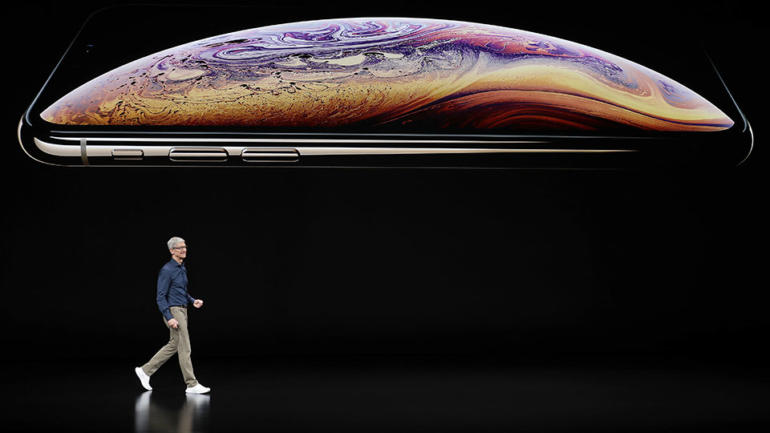Apple unveiled two models that advanced its iPhone X line — the iPhone XS with a 5.8 inch super retina OLED display and the iPhone XS Max with a 6.5- inch display. The phones are driven by a new A12 bionic chip.
CGTN’s Mark Niu reports.
“The chip is ahead in some regards, in terms of being able to pack all of that in one holistic chip,” Ray Wang, Principal Analyst at Constellation Research said. “But the interesting thing about the chip is you saw the trillions of transactions versus the old chip, but more importantly it’s Apple silicon. They are not dependent on anyone else for that chip.”
The A12 bionic chip will allow for everything from greater detailed graphics to more sophisticated augmented reality.
The founder of the basketball training app Homecourt even brought out NBA Hall of Famer Steve Nash to show how the more powerful iPhones can track and improve your jump shot.
“As players train with real time feedback, they build muscle memory,” said Nash. “I really wish when I was younger we had these tools.”
Apple also showed how its improved dual camera system can allow photo takers to adjust the depth of field after taking a shot.
“This has not been possible with any kind of camera,” Phil Schiller, SVP of Worldwide Marketing at Apple said. “This is something iPhone can now do with the power of the A12 bionic chip.”
The iPhone XS base model starts at $999 and the XS Max — a whopping $1099. But Apple tried to appease those unwilling to spend that much… by introducing a 3rd model – the iPhone 10R.
“iPhone XR will allow us to deliver the future of the smartphone to even more people,” Tim Cook CEO of Apple told the crowd.
At a base price of $749, the XR uses an LCD screen instead of super retina OLED and doesn’t have the dual cameras, but does have the A12 bionic chip.
Apple also unveiled its Apple Watch Series 4, which can detect if a wearer falls down and monitor your heart by taking an electrocardiogram.
“Having the American Heart Association there talk about the ability to use the Apple watch to detect A-fib, kind of anomalies in the heart, monitoring and also if you fall — those are very interesting things,” said Wang. “They are coming after healthcare big in two to three years. This is the entry point for them.”
Apple says its ECG app has been cleared by the U.S. Federal Drug Administration — the first device of its kind to gain such approval.
 CGTN America
CGTN America
 Apple CEO Tim Cook speaks about the Apple iPhone XS at the Steve Jobs Theater during an event to announce new Apple products Wednesday, Sept. 12, 2018, in Cupertino, Calif. (AP Photo/Marcio Jose Sanchez)
Apple CEO Tim Cook speaks about the Apple iPhone XS at the Steve Jobs Theater during an event to announce new Apple products Wednesday, Sept. 12, 2018, in Cupertino, Calif. (AP Photo/Marcio Jose Sanchez)
